If the brake pedal sinks to the floor or moves slowly, it could be a problem with the braking system. This could be because of a leak in the brake line or a fluid loss. It’s easy to overlook minor problems with your car, but brake issues should always be taken very seriously.
This post will talk about whether a bad brake booster causes the pedal to go to the floor and how to fix it.
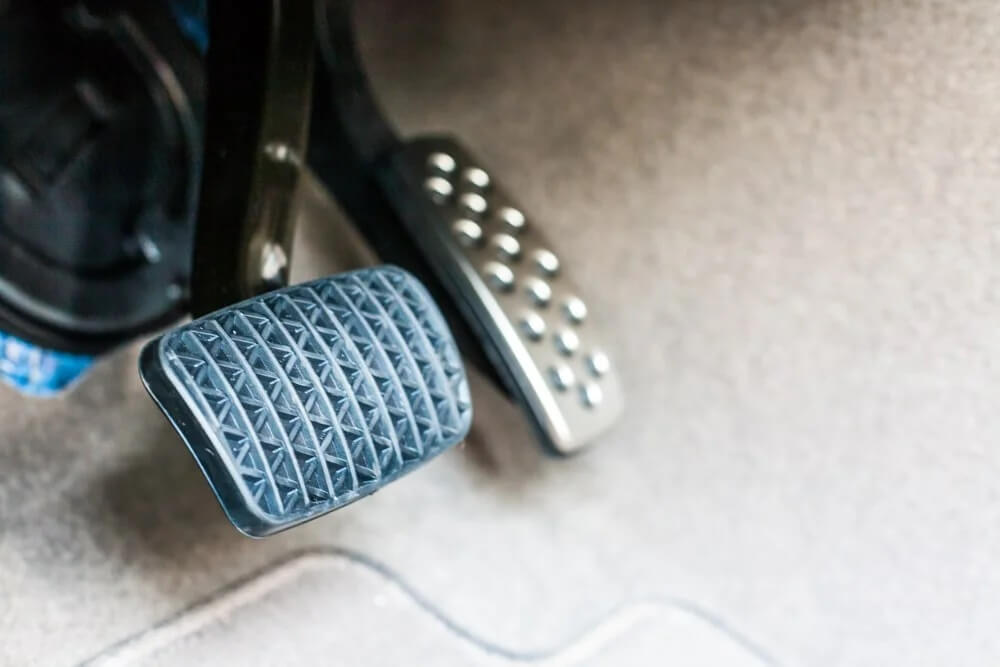
What Causes A Brake Pedal To Sink To The Floor?
What are the 4 main problems if the brake pedal goes to the floor? This section helps you to find the proper reasons behind it.
1. Air in the Brake Lines
A small amount of air can sometimes enter the brake lines, causing the brake pedal to feel light when pressed. If air is trapped in the brakes instead of brake fluid, the pedal may go to the floor, and the brakes won’t perform as well as usual.
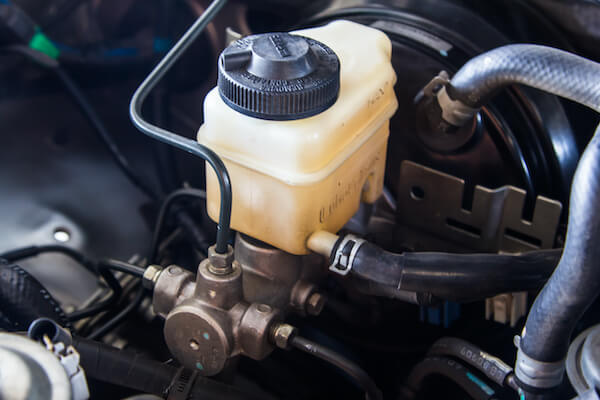
If you see that brake fluid is decreasing, you should add additional as soon as possible. When you bleed the lines and remove any air bubbles, your brakes will remain in excellent condition for longer.
2. Master Cylinder Seal Problems
If the seal inside the master cylinder cracks, air may be able to enter the brake lines when the brakes are applied. This can lead to brake failure, which is unsafe.
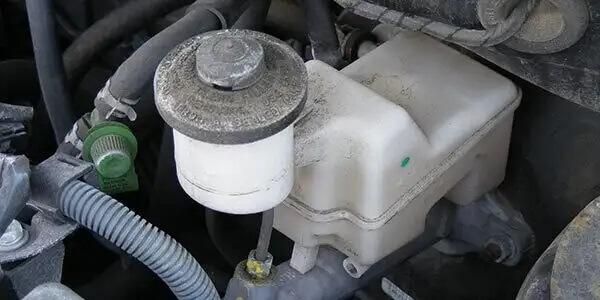
3. Brake Fade
This may cause the brakes to overheat, resulting in the brake fluid boiling or the brake pads being hot. You will notice that your brakes are not as strong. Obtaining new brake pads and oil is necessary to solve this issue.
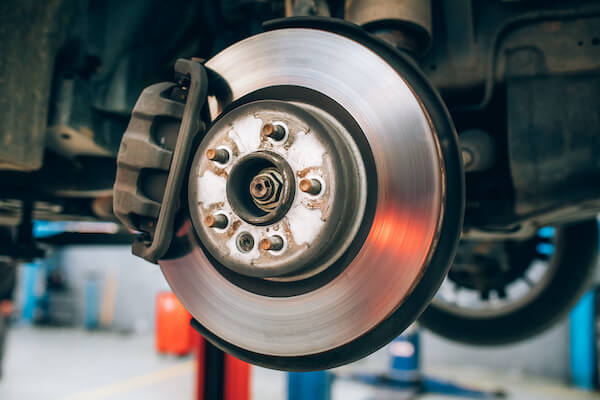
4. Insufficient Brake Fluid
If the brake pedal goes to the floor but the fluid is full, it will most likely indicate the problem. When that light turns on, it is essential to check the quantity of brake fluid that is in your vehicle.
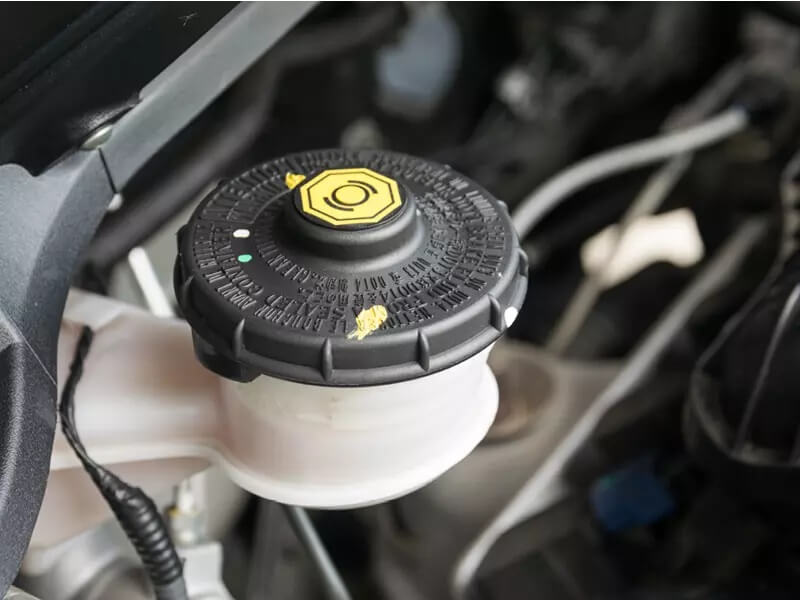
On the other hand, more than adding extra brake fluid may be needed if the brake fluid drops too low and allows air to enter the system. You might have to bleed the lines to ensure your brakes work properly.
Similar Posts:
- Clutch Pedal Sticks To Floor Sometimes
- Why Do My Brakes Squeak After New Pads And Rotors?
- My Brake Pedal Is Stiff And Car Won’t Start
- Clunking Noise When Driving Slow
4 Ways To Fix It If The Brake Pedal Goes To Floor
Because we have discussed why your brake pedal could seem weak, let us now go into how you can determine the specific cause of the problem.
1. Monitoring the Pipes and Brakes
Make sure your car has enough brake fluid. Your brakes are in good condition if the brake lines are complete. There could be a water leak if the fluid level has dropped significantly.
Find the cause of the possible leak by checking the brake lines on all four wheels. You should carefully look at the caliper and the wheel cylinder seal to see if they show any signs of failure.
2. Replace the Brake Pads
To keep your brake pads in good condition, don’t drive on steep hills or press down hard on the stop pedal frequently. In turn, the stop pedal might feel light. In this case, you will need to get new brake pads.
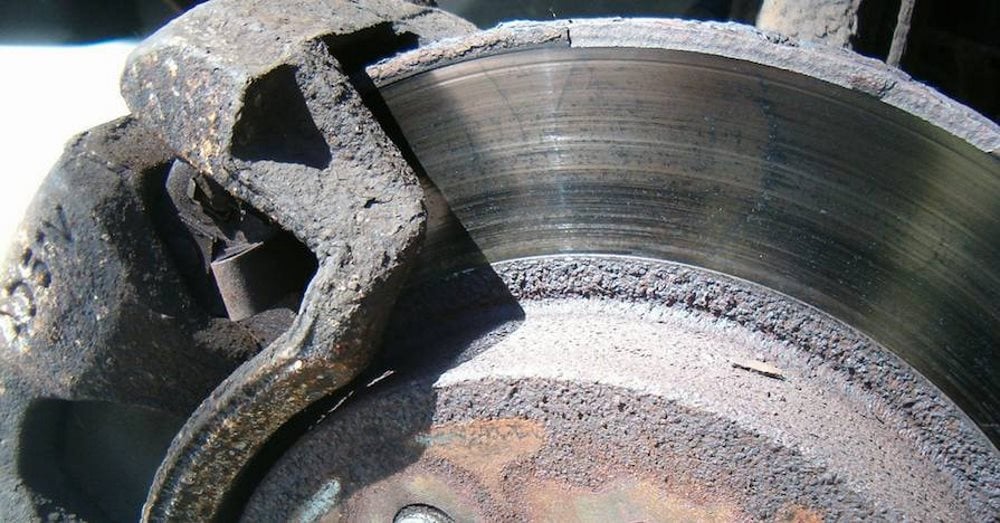
If you drive at high speeds or on hilly terrains, investing in stronger brake pads capable of handling elevated temperatures might be a wise choice.
3. Examining the Brake System’s Master Cylinder
Some seals on the brake master cylinder may wear down over time and begin to leak. In this case, replacing the whole brake master cylinder would be the best thing to do.
I wanted to let you know that driving with a brake master cylinder that leaks is very dangerous because your brakes won’t work right. It should be changed immediately, or you should get help from a professional to fix it.
4. Examining the Brake Rotors for Damage
Sometimes, the problem is with your brake blades, and their condition can provide valuable insights. The good news is that you don’t have to take the wheels off to check the brake rotors.
Look for uneven wear on the brake pads, visible lines on the rotors, and signs of brake fluid leaks near the wheels. Sometimes, after changing pads or calipers, you might wonder why no pressure in your brake pedal. This might happen while driving or when the engine is on, showing potential issues like air in the brake lines or insufficient bleeding procedures after replacement.
What Does It Cost To Fix A brake Pedal That Goes Down?
Conclusion
It’s strange when your brake button sinks, even though no leaks can be seen. The problem could be with the master cylinder, the booster, or dirty brake fluid. Brake lines that get swollen over time could also be to cause. If there are no leaks, these could make your pump feel mushy. A professional should inspect it to identify the actual problem and provide a solution.


![[Solution] Brake Pedal Goes To Floor But No Leaks: 4 Mains Reasons Brake Pedal Goes To Floor](https://carstale.com/wp-content/uploads/brake-pedal-goes-to-floor-but-no-leaks-1024x457.jpg)